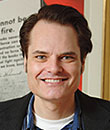For the past few years, an acrimonious debate has been ranging between two camps of conservationists. One faction advocates protecting nature for its intrinsic value. The other claims that if the degradation of the natural world is to be halted, nature’s fundamental value — in other words, what nature can do for us — needs to be stressed. The tone of the rhetoric has led to a petition, published this month in the journal Nature, that criticizes both sides for indulging in ad hominem attacks and unproductive arguments that have devolved into “increasingly vitriolic, personal battles.”

The petition’s 240 co-signatories, led by Jane Lubchenco, former head of the National Oceanic and Atmospheric Administration (NOAA), and Heather Tallis, lead scientist for The Nature Conservancy, call for an end to the infighting, which, they point out, is dominated by men’s voices.
In an interview with Yale Environment 360, Lubchenco, now professor of marine biology at Oregon State University, explains why she and her co-signatories are calling for a more “inclusive conservation” and why the bickering needs to stop.
Yale Environment 360: What was the genesis of this petition?
Jane Lubchenco: I think this petition arose because of deep frustration that many of us were feeling that conservation biology was really getting sidetracked — that it was caught up in rancorous debate that was inhibiting open conversations, prohibiting funding of conservation science, and diverting attention away from the real focus that we believe it should have, which is moving ahead to conserve as much nature as possible for a wide variety of reasons.
e360: The petition states that what began as a healthy debate has “descended into vitriolic personal battles.” Why, in your estimation, did it get to that point?
Lubchenco: That’s a good question. You know, sometimes people are people. They so believe in what they do, they sometimes get carried away with it. And in this particular case, individuals who believe passionately that we should be conserving nature for its own intrinsic value had, I believe, legitimate concerns that focusing on the value of nature to people both cheapened the moral and ethical arguments for protecting biodiversity, but also would open the gates to lack of protection if something was not obviously useful to people. But that perspective was articulated in a way that implied that was the only valid perspective, that other perspectives were not legitimate and, in fact, were counterproductive.
“A lot of people are saying, enough already, this really is not helpful.”
And the impression that many younger people in this field got was that the individuals who were articulating that were taking a “it’s my way or the highway” approach. On the other end of the spectrum, there’s been a huge amount of new work devoted to understanding better the myriad ways in which people benefit from nature and trying to incorporate that knowledge into ways to recognize and work toward healthy ecosystems because it’s in our interest to do so. And over time, those two perspectives, the first being the focus on intrinsic values, and the second focus on instrumental values, have gotten more and more polarized and more vitriolic. And it has just come to a head and a lot of people are saying, enough already, this really is not helpful.
e360: There have been some rather extreme criticisms lobbied on the part of both camps. Those who advocate an instrumental value approach to conservation say that so-called traditional conservationists ignore on-the-ground human realities and romanticize wild places. Traditional conservationists counter that the so-called new conservationists paint a way too rosy picture of the resiliency of landscapes and are in bed with polluting corporations. Given all that, do you think this petition will actually have the effect of lowering the temperature of this debate?
Lubchenco: I believe it will. I certainly hope it will. So one thing that this petition is doing is shining a spotlight on the fact that the champions of the opposing camps have been only a few voices and not broadly representative of the huge diversity of people working on conservation funds or conservation practice around the world. Younger scientists were not represented, women were not represented, individuals from a wide spectrum of countries around the world have not really been a part of this debate. And so I think that making that obvious, which this petition does, will help get us in a better place. It’s really calling for a more unified and inclusive focus on the importance and the value of nature.
e360: The petition, as you said, does point out that the major players in this dispute are nearly all men, so you and your co-signatories are calling for a more inclusive representation of voices in conservation science. But are you suggesting that women’s voices and voices, let’s say, from the developing world, would lend more civility and openness to the debate?
“All perspectives are in fact legitimate and have different resonance and different applicability by different stakeholders.”
Lubchenco: I think anytime you have a broader diversity of voices, you get a diversity of perspectives, and in that diversity you tend to have more tolerance and more openness. And that’s exactly what we’re calling for.
e360: Then how do you achieve more cultural and gender diversity in conservation science debates?
Lubchenco: Well, there’s already a huge age, gender and cultural diversity in conservation science and practice around the world, and many of the things that we suggest in the petition are ways to do a better job of incorporating that diversity into this particular dialogue. We’re suggesting that conferences and discussions in the halls of academia and conservation organizations should make very concerted efforts to be more inclusive.
e360: Your petition makes the point that certain audiences will respond to an intrinsic value message, other audiences will resonate with the instrumental approach. But when it comes to real world decisions, for instance, consulting with corporate polluters or not, doesn’t one really have to come down on one side or the other?
Lubchenco: In any particular instance, it may be the case that one set of arguments is more relevant or appealing to different constituencies. There’s no doubt about the fact that real-world decisions in conservation, are indeed tough and do oftentimes force choices. What we’re calling for is an acknowledgement that all perspectives are in fact legitimate and have different resonance and different applicability by different stakeholders or different circumstances.
e360: In the commentary you and your coauthors recommend a number of remedies. One of them concerns the academic training of conservation scientists and urges institutions to “more accurately portray the rich global history of the field.” That implies that one side of this argument perhaps isn’t getting enough attention in academia now. So what is not being taught that should be?
“I think it’s incumbent upon everyone to be more inclusive in the field and in their lectures.”
Lubchenco: Some champions of one extreme perspective or the other have articulated the position that this way, my way, is the way to do conservation biology. And I think it’s incumbent upon everyone to be more inclusive in the field and in their lectures, in their seminars, in their courses, and recognize that these different arguments have been around for some time and continue to play out in today’s world. But they need not be pitted, one against the other. They can coexist.
e360: The petition also calls for expanding the evidence base that can identify what works and what fails in conservation so that “we can move from philosophical debates to rigorous assessments.” To me that sounds like the petition is calling for good science. So I’m wondering why isn’t enough of that work being done now?
Lubchenco: That work is being done now. We need more of it, and we want the focus to be getting that work done, not on these silly arguments that are diverting attention from the real business.
e360: The originator of the petition, Heather Tallis, is lead scientist at The Nature Conservancy. You sit on the board of that organization, which is known to be staunchly in the instrumental value camp. Its chief scientist, Peter Kareiva, has been the focus of a lot of criticism for his views on the topic. Are you concerned that those who believe in the intrinsic values approach may interpret this petition as a call to stop criticizing The Nature Conservancy so much?
ALSO FROM YALE e360Finding a Better Message on The Risks of Climate Change

Lubchenco: It is true that The Nature Conservancy has been criticized because Peter Kareiva has been a strong champion of instrumental values. But I believe that he, like me, actually has a pretty inclusive view of this, which is that the intrinsic values are, in fact, really important, and very legitimate and need to be argued when they are appropriate, but that those values alone have not stemmed the loss of biological diversity and those arguments alone are insufficient in appealing to the breadth of audiences and stakeholders that are really needed to arrest the loss of both species and functioning ecological systems. So I think this is really an attempt to legitimize both approaches and to make it clear that neither one nor the other is the end all and be all.
e360: The petition, which calls for “an end to the fighting,” has 240 original co-signatories and there’s a website where others can add their names. I noticed today that biologist Michael Soulé, a staunch advocate of intrinsic value and one of the main protagonists in this fight, has added his name to the petition. So has Peter Kareiva. Is that a good start?
Lubchenco: I think that is a fabulous start, and I hope that will be a harbinger of peace to come.